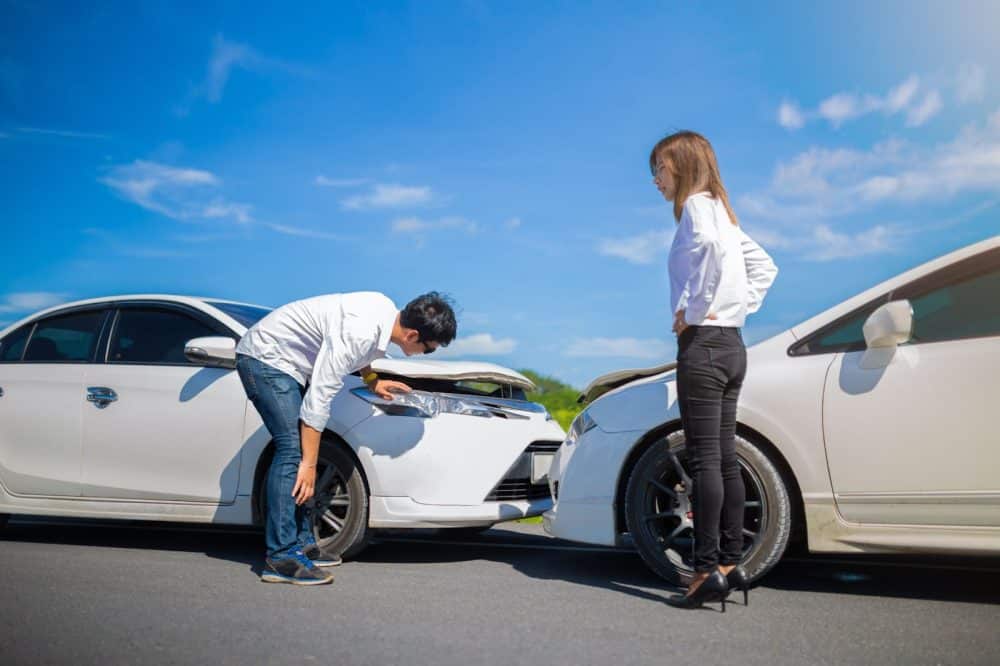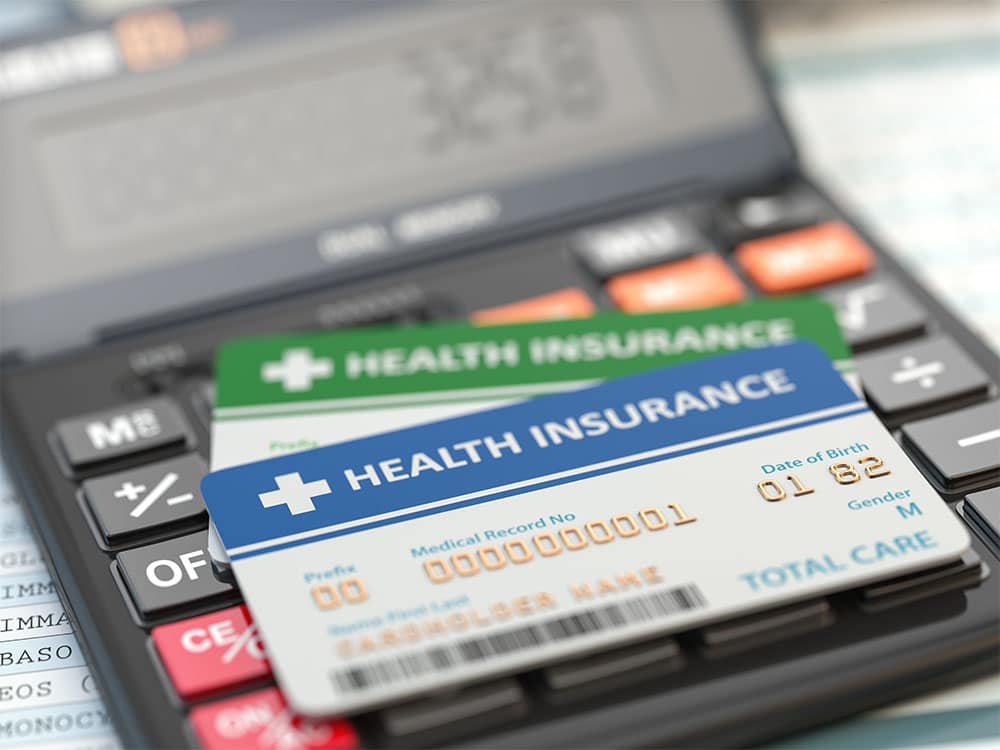
What Drivers Need To Know About Uber Insurance

If you’re in an accident on the job, you don’t want to be surprised by all of the expenses that can follow. Uber insurance coverage is tricky, but you won’t be caught off guard after reading this guide. We’ll explain all the nuances, answer your pricing questions, and address other details Uber drivers should know before taking their next job.
Uber drivers are discovering affordable dental care for adults without insurance.
Who Is Covered by Uber Insurance?

Uber provides liability insurance coverage for qualified contractors. Here’s the criteria you must meet for coverage eligibility:
- Live outside of New York: NY drivers are not covered.
- Be actively engaged in a delivery: Drivers must be logged into the Uber app and transporting either food or passengers at the time of accident to qualify for coverage.
If you meet those criteria, you are likely covered by Uber’s insurance policy.
However, you still need to have your own insurance policy to drive for Uber, and you might even want to invest in additional coverage to protect yourself. Keep reading to learn more.
What Does Uber Insurance Cover?
When driving for Uber Eats or Uber’s rideshare service, you’re automatically covered under a free, third-party insurance contract by their insurance provider (currently Portier LLC).
This type of coverage is for liability purposes only. Contract terms are as follows:
- $1 million of liability (per incident)
- An additional $50,000 in third-party bodily injury coverage limits per individual (up to $100,000) for between-trip accidents if your insurance does not cover it
- $25,000 in property damage liability for in-between accidents that aren’t covered by your insurance
These numbers are generalized rideshare insurance policy limits.
Per Uber’s website: “Uninsured/underinsured motorist bodily injury coverage and first-party injury coverage limits vary by state.”
The Fine Print
There are some exceptions to the policies outlined above. These exceptions apply mostly to rideshare drivers.
For example, when riders request and accept a ride, they sign a document that absolves Uber of responsibility in an accident.
So who becomes liable?
You do if the accident is your fault.
When driving for work, you assume Uber is responsible for collision coverage. Even if this is true, you’re still on the hook for any rideshare insurance coverage deductibles (usually $1,000 or $2,500, depending on the accident and vehicle involved).
Uber can waive your covereage if you get cited as the at-fault cause of the accident.
Since you’re an independent contractor, they’re not liable for your actions. Unless the victim’s attorney can prove that Uber was negligent in hiring or training you, your insurance becomes primary.
It’s a legal battle in which you don’t want to worry about coverage gaps when you’re involved.
Main takeaway: Uber’s policy is excellent, but don’t rely on it to protect you.
Subscribe To SelfGood
Get up to date perks and Gigworker news. Easy. Simply. SelfGood. Subscribe.
Do You Need Your Own Insurance to Drive for Uber?
You need car insurance coverage if you plan to use your car while working for Uber. All rideshare drivers need their own insurance coverage, because this job requires a car. Uber Eats delivery workers may be able to work without insurance coverage if they deliver food on foot or bicycle.
However, it’s important to note that your personal insurance policy may not cover you while you’re working. Therefore, you may want to consider investing in additional insurance to make sure you’re covered in case of an accident.
Keep reading for more info on additional coverage.
Additional Coverage That’s Good to Have
Did you know that your personal vehicle insurance will probably not cover you if you’re in a work-related accident?
Because of the popularity of rideshare and delivery service jobs, most auto insurance companies have added an exclusion for accidents in the line of business.
Uber and Lyft drivers, in particular, are often listed as non-covered entities. To be safe, check with your insurance carrier to see if you can get work-related coverage as an add-on to your current personal auto insurance policy. You may have to look elsewhere if your company doesn’t offer rideshare or similar insurance.
Commercial Versus Business Auto Insurance
These two terms crop up as you explore your coverage options. They sound the same, yet they have a few distinct differences. These little nuances gear the policies toward specific industries.
What Is Commercial Auto Coverage?
Commercial auto insurance covers businesses that use vehicles as part of their services. Uber would have to invest in this coverage if you were a full-time employee.
Think about it like this: pizza shop delivery drivers are employees, not independent contractors. Therefore, pizza shop owners have to buy commercial insurance that covers their employees in the event of an on-the-job accident.
However, you as an Uber driver are an independent contractor. So you are the business owner and Uber is your client. This means that buying a commercial auto policy falls on you.
However, some companies, such as Allstate and GEICO, offer rideshare insurance. Talk to your agent to see which criteria are legally required in your state.
What Is Business Auto Coverage?
Business auto coverage refers to insurance that covers your vehicle for incidental work use. For example, business coverage kicks in if you’re an IT support person heading to a client’s house to work on their computer.
Here lies the difference between commercial insurance coverage and business insurance coverage:
Commercial insurance covers you if you work in your vehicle (which you do as an Uber driver). Business insurance only covers you if you’re on your way to or from a work-related event.
Optional Coverage For Uber Drivers

You already know your car insurance policy is vital to your career. You’ll have to keep Uber’s minimum insurance requirements to hold onto your job and protect yourself from liability.
Of course, auto coverage isn’t the only asset protection type out there. Are you taking steps to plan for emergency and unexpected situations proactively?
Uber’s Optional Injury Protection
Since you’ve become a self-employed business owner, you might have lost the benefits of other corporate insurance policies, like life insurance and disability coverage.
Fortunately, Uber has Optional Injury Protection you can sign up for right in the app. For a low insurance cost of $0.03 per mile driven, you can get disability, medical expense, and survivor benefit coverage.
Disability will pay you up to $500 per week to replace your income if you cannot work for a while due to an illness or injury. Should you end up with a severe accident-induced doctor bill, medical expense coverage helps.
Uber’s policy provides accident coverage up to a maximum of $1,000,000. As a bonus, there’s no deductible or copay to worry about.
Something else to think about is how your family will get along if you’re not there to provide for them. Uber’s survivor benefits package pays a maximum of $150,000 in the event of your death.
However, if you live in California, you don’t have to pay for Optional Injury Protection; effective 12/16/20, this coverage is gratis, paid for by Uber.
What About Other Benefits?
Accident expense coverage is excellent, and the peace of mind that comes with knowing you’ll have an income if you’re out of work due to health problems is priceless.
But, in addition to these important policies, having proactive health protection is beneficial. Whether you lost your health insurance when you left your corporate job or if you never had it in the first place, you now have options.
As a self-employed gig worker, you’re entitled to healthcare indemnity benefits and other policies from Selfgood’s Insurance Marketplace.
Selfgood is a platform designed especially for independent workers and small business owners. Everything you need to build and expand your side job or full-time gig is there.
Learn how to obtain self-employment insurance in your field:
Freelance Disability Insurance | Freelance Ghost Insurance | Freelance Workers Comp Insurance | Freelance Critical Illness Insurance | Freelance E&O Insurance | Freelance Airbnb Host Insurance | Freelance Commercial Auto Insurance | Freelance Commercial Property Insurance | Freelance Utah Home Insurance | Freelance Amazon Flex | Freelance Carpet Cleaning Insurance | Freelance Window Cleaner Insurance | Freelance Pressure Washer Insurance | Freelance Electrician Insurance | Freelance Mechanic Insurance | Freelance Junk Removal Insurance | Freelance Bartender Insurance | Freelance Hair Stylist Insurance | Freelance Barber Insurance | Freelance Taskers Insurance | Freelance Web Designer Insurance | Freelance Doordash Driver Insurance | Freelance Plumber Insurance | Freelance Writer Insurance
Conclusion
“Buyer beware” is a frequent warning for shoppers today, but Uber’s insurance policy is free. This makes it easy to overlook the downside of driving for the mega company and assuming their insurance will protect you.
Now that you know the reality behind Uber’s policy and what it covers, it’s time to call your agent for an insurance quote. Check with State Farm, USAA, or other well-known names to see if they offer rideshare coverage.
Then, you’ll head to your next Uber assignment, knowing you’re shielded with the best coverage possible.





